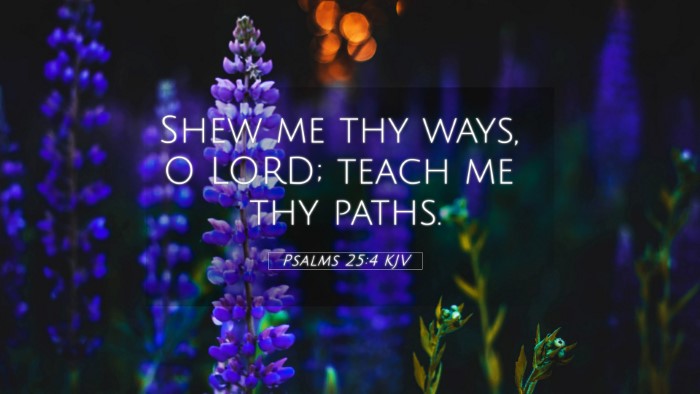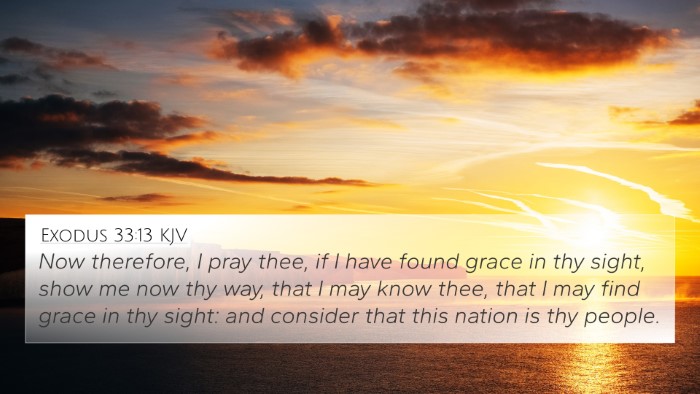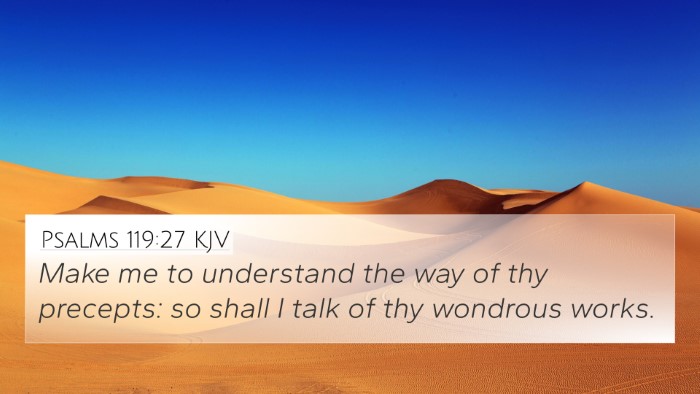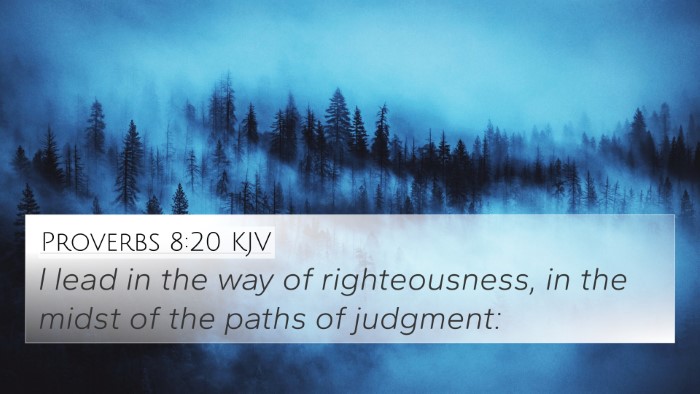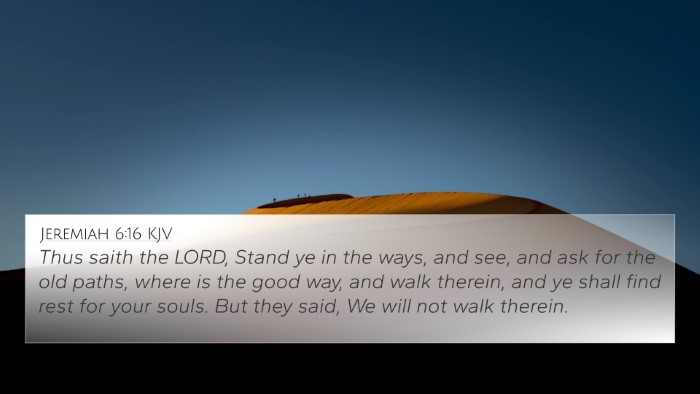Psalms 25:4 - Understanding the Verse
Psalms 25:4 states: "Show me your ways, O LORD; teach me your paths." This verse encapsulates a plea for divine guidance, demonstrating a deep yearning for spiritual understanding and direction.
Summary of Insights from Public Domain Commentaries
Matthew Henry's Commentary
Matthew Henry emphasizes the importance of seeking God's guidance through prayer. He points out that this verse reflects the psalmist's humble acknowledgment of his need for God’s direction and wisdom. The use of "show" and "teach" indicates a desire for active engagement with God, suggesting that believers should continuously pursue a deeper relationship with Him.
Albert Barnes' Commentary
Albert Barnes notes that this verse is a direct appeal to God for clarity and instruction. He interprets "ways" as God's moral and ethical instructions, while "paths" symbolize the practical steps one should take in life. Barnes suggests that understanding these ways and paths leads to a righteous life aligned with God's will.
Adam Clarke's Commentary
Adam Clarke points out that this plea reflects a deep spiritual hunger and a recognition of the complexities of life. He argues that the "ways" represent God's general will, whereas "paths" indicate the specific desires God has for individuals. Clarke underscores the importance of divine teaching in navigating life's challenges, positioning God as the ultimate source of truth and guidance.
Connections with Other Bible Verses
This verse connects to several other passages, enhancing its understanding within a broader biblical context. Below are 7 key Bible cross-references related to Psalms 25:4:
- Proverbs 3:5-6: "Trust in the LORD with all your heart and lean not on your own understanding; in all your ways submit to him, and he will make your paths straight." This verse reinforces the theme of trusting God for guidance.
- Isaiah 30:21: "Whether you turn to the right or to the left, your ears will hear a voice behind you, saying, 'This is the way; walk in it.'" This highlights God's intention to direct His people.
- James 1:5: "If any of you lacks wisdom, let him ask of God, who gives to all liberally and without reproach, and it will be given to him." This emphasizes the importance of asking God for guidance.
- Psalm 119:105: "Your word is a lamp to my feet and a light to my path." This illustrates how God's Word serves as guidance in moral and practical decisions.
- Micah 6:8: "He has shown you, O mortal, what is good. And what does the LORD require of you? To act justly and to love mercy and to walk humbly with your God." This verse calls for active engagement with God's directions.
- Romans 12:2: "Do not conform to the pattern of this world, but be transformed by the renewing of your mind. Then you will be able to test and approve what God's will is." This stresses the importance of divine clarity in understanding God's will.
- John 14:26: "But the Advocate, the Holy Spirit, whom the Father will send in my name, will teach you all things and will remind you of everything I have said to you." This signifies God's ongoing role in teaching His children.
Inter-Biblical Dialogue and Thematic Connections
Psalms 25:4 serves as a critical verse for understanding the relationship between humanity and divine instruction. The themes in this verse resonate throughout the Scripture and highlight the consistent call for believers to seek God's wisdom.
As seen in the references above, there is a clear pattern of seeking divine guidance and understanding His ways in various contexts across both the Old and New Testaments. This encourages a comprehensive Bible cross-reference study, showing how themes of guidance and teaching recur throughout scripture.
Using Bible Cross-references for Deeper Understanding
Understanding the connections between Bible verses can enhance the depth of one's study. Utilizing a Bible concordance or a cross-reference guide will facilitate the exploration of these relationships, revealing coherence and a unified message throughout the biblical text.
Tools for Bible Cross-referencing
- Bible Concordance: Helps locate words and their occurrences across scripture.
- Cross-reference Bible Study: Integrates related verses for more profound contextual understanding.
- Bible Reference Resources: Various aids can assist in finding thematic links between verses.
- How to use Bible Cross-references: Serves as a guide to developing a systematic approach to exploring connections.
Conclusion
Psalms 25:4 is a profound verse reflecting the believer's desire for God's instruction and direction. By cross-referencing related scriptures, one can gain deeper insight into the overarching themes of divine teaching and guidance in the Bible. This not only enhances personal study but also enriches the communal understanding of how God's will is progressively revealed through His Word.

